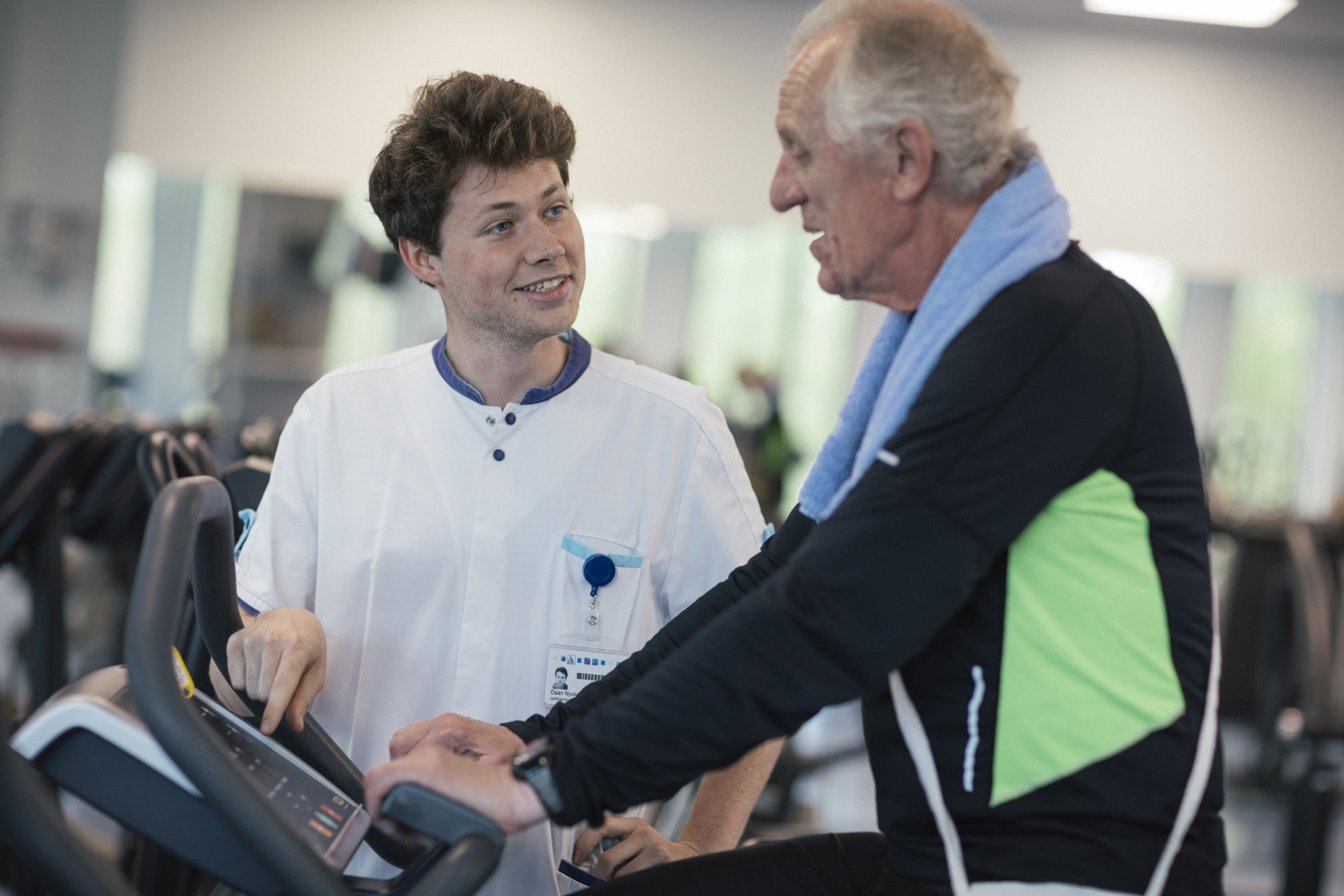Multidisciplinary pain rehabilitation
What is it?
What is it?
Our 'multidisciplinary pain rehabilitation' programme focuses on people who: contend with chronic pain
- do not have prospective surgery or treatments at a pain centre;
- want to improve their overall fitness and functioning.
The programme focuses on the interaction between medical, social and psychological factors. Treatment is primarily aimed at improving patients’ quality of life.
The treatment does not directly target reducing the pain itself. We want to draw the patient’s attention away from the experience of the pain. This makes room for different experiences as well as a forward-thinking persective.
Treatment procedure
Treatment procedureEight weeks of two-hour sessions twice a week:
- one hour of physical therapy
- one hour of occupational therapy or psychology
Patients participating in the programme come to our hospital every Monday and Wednesday for eight weeks for one hour of physical therapy and one hour of occupational therapy or psychology. The total treatment entails:
- Sixteen physiotherapy sessions (including one relaxation session)
- Eight occupational therapy sessions
- Eight psychological counselling sessions
- One multidisciplinary session, after two months
Physical therapy
When someone has chronic pain, they may begin moving less and less for fear of being in more pain. However, by moving less, your fitness decreases even further, therefore, you are just in more pain. This is how you end up in a negative spiral in the long run.
The goal of Graded Activity is to break this negative spiral. Step by step, your fitness will be restored through an individual exercise programme. You start off at a level that is achievable for you, and continue building from there. Through this approach, we want to give you control over your daily exercise pattern.
Psychological aspects
We also focus on your quality of life, focusing on the things that still work. Themes such as load/load capacity, acceptance, social skills, coping with stress, brooding and sleep are covered.
Occupational Therapy
Our occupational therapist provides advice to help you function better in your daily activities at home, at work and in your social life. The occupational therapist may make recommendations about the use of aids, if necessary. Striking a better balance between activities that demand energy and those that provide energy is another way to focus on improving your quality of life.
How can I participate?
How can I participate?Patients eligible for the programme can be referred by their attending physician to an information session about the rehabilitation programme.
If, after the information session, you are interested in joining the programme, you will have an intake meeting with the psychologist. This includes checking whether the participant's expectations match the objectives of the rehabilitation programme.
Leaflet
LeafletCentres and specialist areas
Centres and specialist areas
Something wrong or unclear on this page? Report it.
Latest publication date: 13/08/2024











